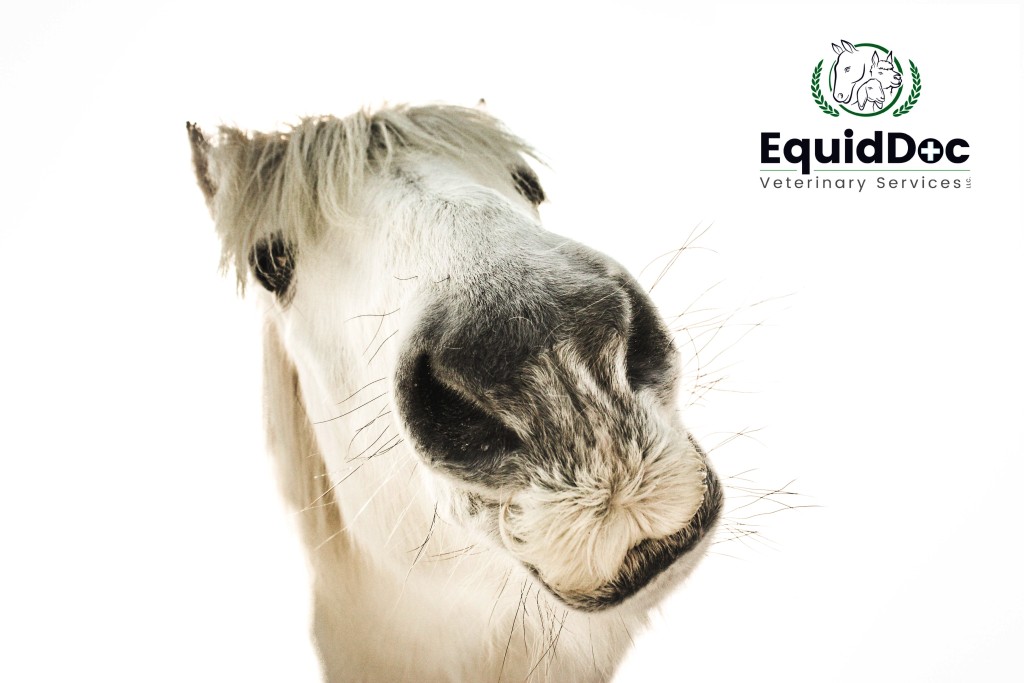It’s that time of year again, when the leaves start to turn, and the air feels cool and brisk. For many in New England, fall is the most anticipated and favorite time of year. But for EquidDoc veterinarians and many of our equine friends, fall carries a dreaded increase in the number of colic episodes caused by impactions.
Impactions occur when a portion of the horse’s GI tract becomes blocked, unable to properly move food and manure through. Impactions can occur anywhere between the esophagus and the rectum; however, they most often occur in the pelvic flexure of the large colon. This area of the horse’s GI tract is unique in its narrowing diameter within the tract and intensely curved shape that make it vulnerable to slow-downs and halting of ingesta (feed in the digestive track; pre-manure).
Two of the most common reasons that impactions occur are 1) a decrease in water within the bowel leading to a thicker and more sluggish ingesta, and 2) large particle size of feed moving through the bowel (frequently due to poor dentition or improper chewing) leading to a clogged or impacted portion of the GI tract. Annual dentistry is important for our four-legged friends, as is the need to maintain a high level of hydration. Just as we do, horses tend to drink more water in the hot summer months to cope with the heat and meet their physiologic demands. However, as the temperature decreases with the change of seasons so too does our horses’ water consumption. Horses will often continue to eat the same amount of food, but with less water moving through their GI tract, becoming more prone to impaction colic.
There are various causes and forms of colic that are often elusive and unable to be explained. Fortunately, owners can take certain measures that can help avoid a serious slowdown in their horse’s GI tract. The following preventative steps are recommended in hopes of avoiding an impaction colic this fall and winter:
- Schedule a routine dental appointment with your EquidDoc veterinarian to evaluate your horse’s dentition, address abnormalities, and make an appropriate feeding plan.
- Add water to any dry grain, pellets, or cubes (as much as your horse will tolerate, some enjoy warm water mashes in the winter!). Hay cubes should alwaysbe soaked, regardless of time of year or horse’s health status.
- Substitute a portion of your horse’s hay with a hay pellet or cube mash, soaked to the consistency of runny oatmeal.
- Hang several water buckets for your horse – one always with plain fresh water, and several others with added flavors such as a dash of sweet feed, Gatorade, apple juice, molasses, etc.
- If your horse is not in a regular exercise program or does not spend a good amount of time moving about in turnout, take your horse for a 5–10-minute hand-walk once or twice daily to help promote intestinal motility.
- Add a tablespoon of salt to their mash feed once or twice daily depending on how much grain they get or how often they use their salt lick.
If you have any questions or concerns regarding your horse’s health or risk for colic as we head into winter, please call 508-885-4205 to speak with an EquidDoc team member today!


